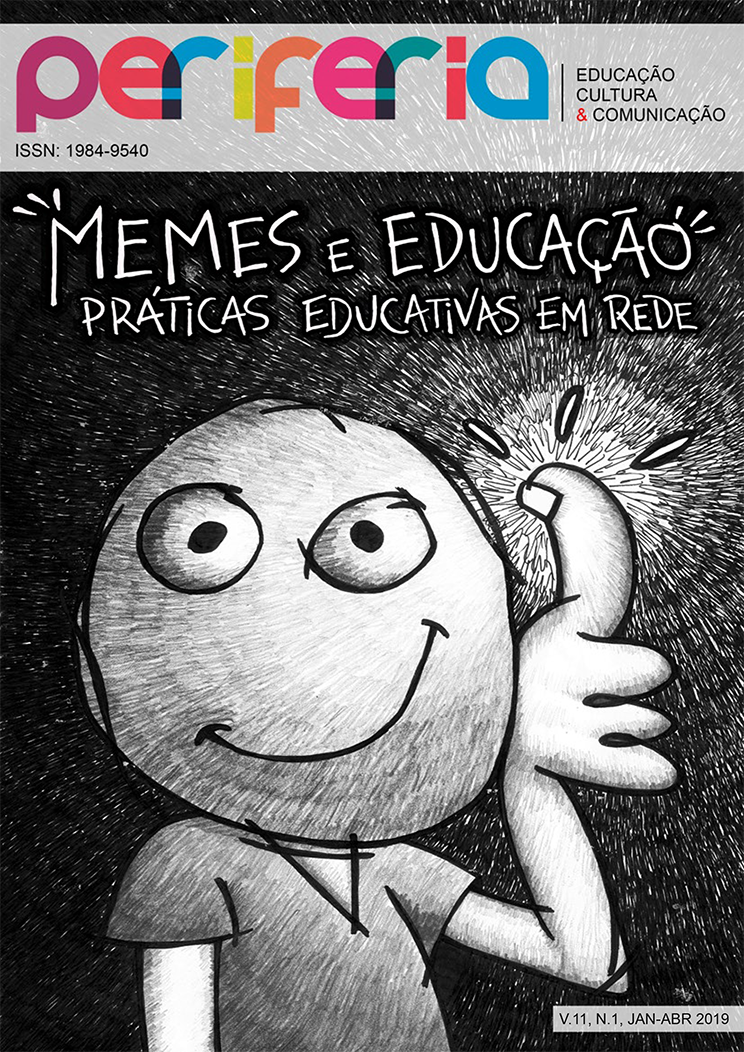ONGs: PRÁTICA CIDADÃ OU OMISSÃO DE UM ESTADO REGULADOR?
DOI:
https://doi.org/10.12957/periferia.2019.34455Palavras-chave:
ONGs, educação informal, práticas pedagógicas, estado, sociedadeResumo
Este trabalho tem como objetivo problematizar a historicidade das Organizações não governamentais (ONGs) no Brasil, assim como analisar suas contribuições sociais e suas práticas pedagógicas no que diz respeito aos espaços de educação não formal. Nesta direção, como operação metodológica foram feitas análises de aportes teóricos a partir de estudos voltados ao percurso das ONGs nacionais e ao papel desempenhado socialmente por essas instituições, assim como, análise de pesquisas que investigam a atuação das ONGs em espaços educativos de forma dissociada de cenários escolares, promovendo, ainda assim, um ambiente formador. Com esta empreitada justifica-se a escolha do objeto de estudo acreditando ser um tema relevante, já que é possível questionar a transferência estatal da responsabilidade estatal sob uma concepção de Estado Regulador (BARROSO, 2005), observando, deste modo, o processo histórico de atuação dessas instituições, seus objetivos principais em cada contexto, além de apresentar a discussão em torno dos diferentes espaços de formação, sejam eles formais ou informais, escolares ou extra-escolares (GOHN, 2013). Conclui-se que as Organizações não Governamentais atuam em variados espaços com objetivos específicos e que, apesar de desempenharem um importante papel social, essas instituições não devem diminuir o papel e o compromisso do Estado com as políticas educacionais públicas.
Downloads
Publicado
Como Citar
Edição
Seção
Licença
Autores que publicam nesta revista concordam com os seguintes termos:- Autores mantém os direitos autorais e concedem à revista o direito de primeira publicação, com o trabalho simultaneamente licenciado sob a Creative Commons Attribution License que permitindo o compartilhamento do trabalho com reconhecimento da autoria do trabalho e publicação inicial nesta revista.
- Autores têm autorização para assumir contratos adicionais separadamente, para distribuição não-exclusiva da versão do trabalho publicada nesta revista (ex.: publicar em repositório institucional ou como capítulo de livro), com reconhecimento de autoria e publicação inicial nesta revista.
- Autores têm permissão e são estimulados a publicar e distribuir seu trabalho online (ex.: em repositórios institucionais ou na sua página pessoal) a qualquer ponto antes ou durante o processo editorial, já que isso pode gerar alterações produtivas, bem como aumentar o impacto e a citação do trabalho publicado (Veja O Efeito do Acesso Livre).







